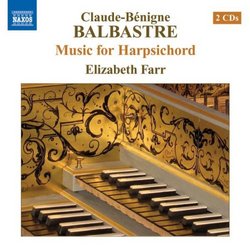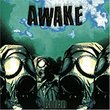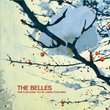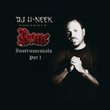| All Artists: Balbastre, Farr Title: Music for Harpsichord Members Wishing: 0 Total Copies: 0 Label: Naxos Original Release Date: 1/1/2010 Re-Release Date: 1/26/2010 Genre: Classical Styles: Historical Periods, Classical (c.1770-1830) Number of Discs: 2 SwapaCD Credits: 2 UPC: 747313203475 |
Search - Balbastre, Farr :: Music for Harpsichord
CD DetailsSimilar CDs
|
CD ReviewsHaving a Bal-bastre Craig M. Zeichner | Brooklyn, NY | 02/20/2010 (5 out of 5 stars) "Probably best-known as an organist--Claude-Bénigne Balbastre's charming noëls are most familiar--but his harpsichord music has enjoyed little acclaim. Balbastre (1727-1799) was a virtuoso organist known for his quirky improvisations during church services and also remembered as a friend to the aristocracy during the final years of the ancient régime. Balbastre taught Marie-Antoinette the harpsichord but fortunately dodged the guillotine blade when revolutionary murderers changed France forever. Fondly remembered by Charles Burney in his Present State of Music in France and Italy, Balbastre died in poverty. Thanks to the always excellent harpsichordist Elizabeth Farr for serving up this recording of Balbastre's highly engaging music.
Balbastre was certainly no Couperin or Rameau (with whom he studied) but there is plenty of excellent music to enjoy. Fairly typical of the period, Balbastre's Pièces de clavecin is comprised of little character portraits. These are filled with an equal mix of wit and tenderness. La Castelmore opens with a delicious imitation of country pipers while its second part is marked by its gentle sweetness. The balance of the recording features a sampling of Balbastre's Livre contenant des pieces de different genre d'orgue et de clavecin, a collection of 75 works for keyboard. Farr plays eight of the 24 works for harpsichord. She closes the program with the Marche des Marseillois et l'air Ça-ira, a set of variations on the revolutionary tunes la Marseillaise and Ça ira. It's a kind of bittersweet snapshot of Balbastre's place in revolutionary France. Farr plays a big Keith Hill harpsichord with two buff stops. Perhaps not exactly the harpsichord Balbastre would have played--French harpsichords with 16' stops have not survived--but it sure sounds good. Big bass sound and tasteful use of the buff stops make this outstanding at every turn. " |






